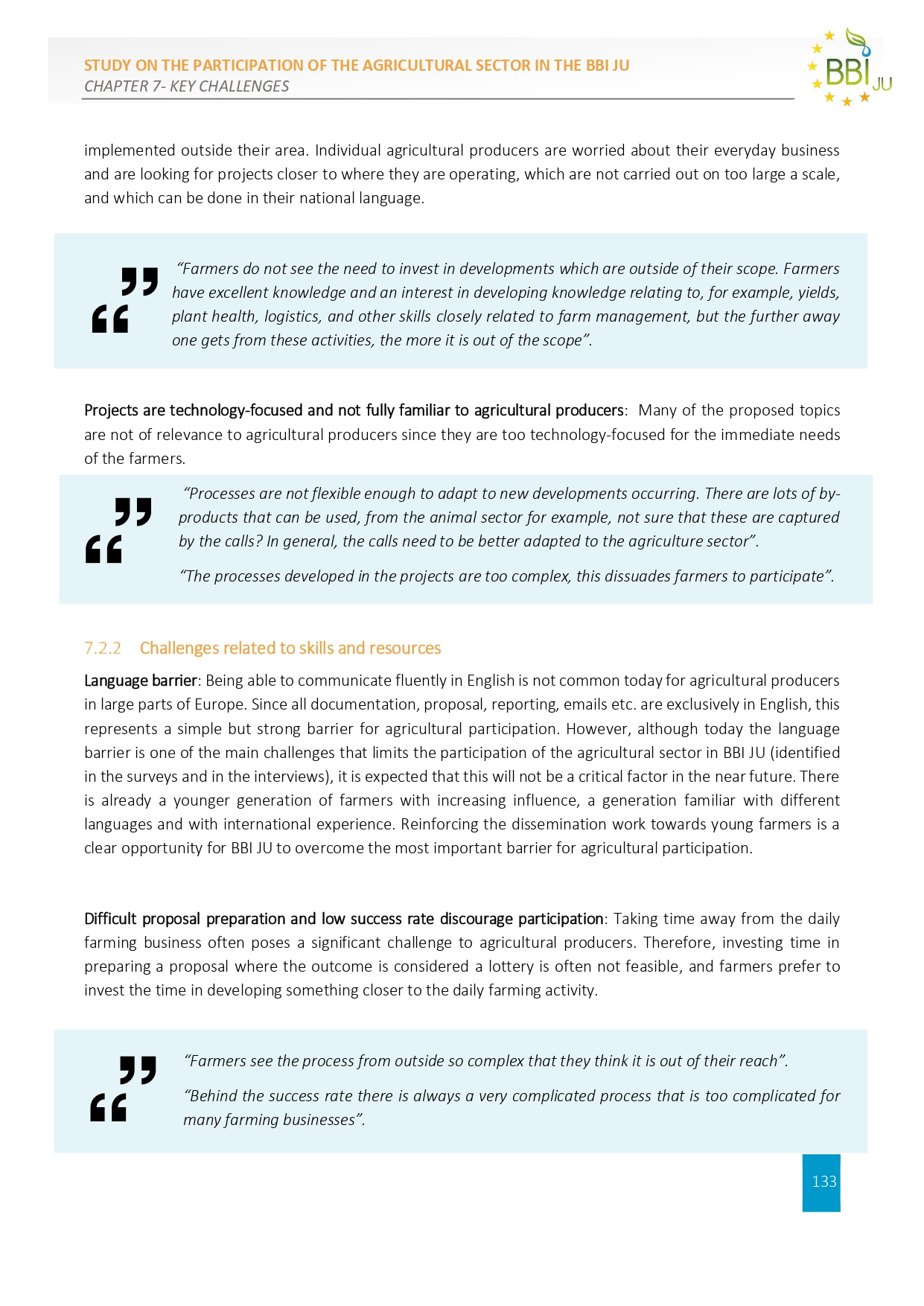For privacy reasons X needs your permission to be loaded. For more details, please see our Privacy Policy.
I AcceptBetween March and August of 2019, Innvoarum carried out the “Study on the participation of the agricultural sector in the BBI JU: business models, challenges and recommendations to enhance the impact on rural development”. The study was commissioned by the BBI JU (Bio-Industries Joint Undertaking) and published on the 28 of January of 2020.
Maya Hernando and Irene Paredes coordinated the execution of the study, which counted with the extensive contribution of Carina Folkenson.
Previous posts
#WeMakeInnovationHappen
Do you have an innovative idea for a project? Are your looking for project management support? Do you need a Dissemination and Communication Partner?











